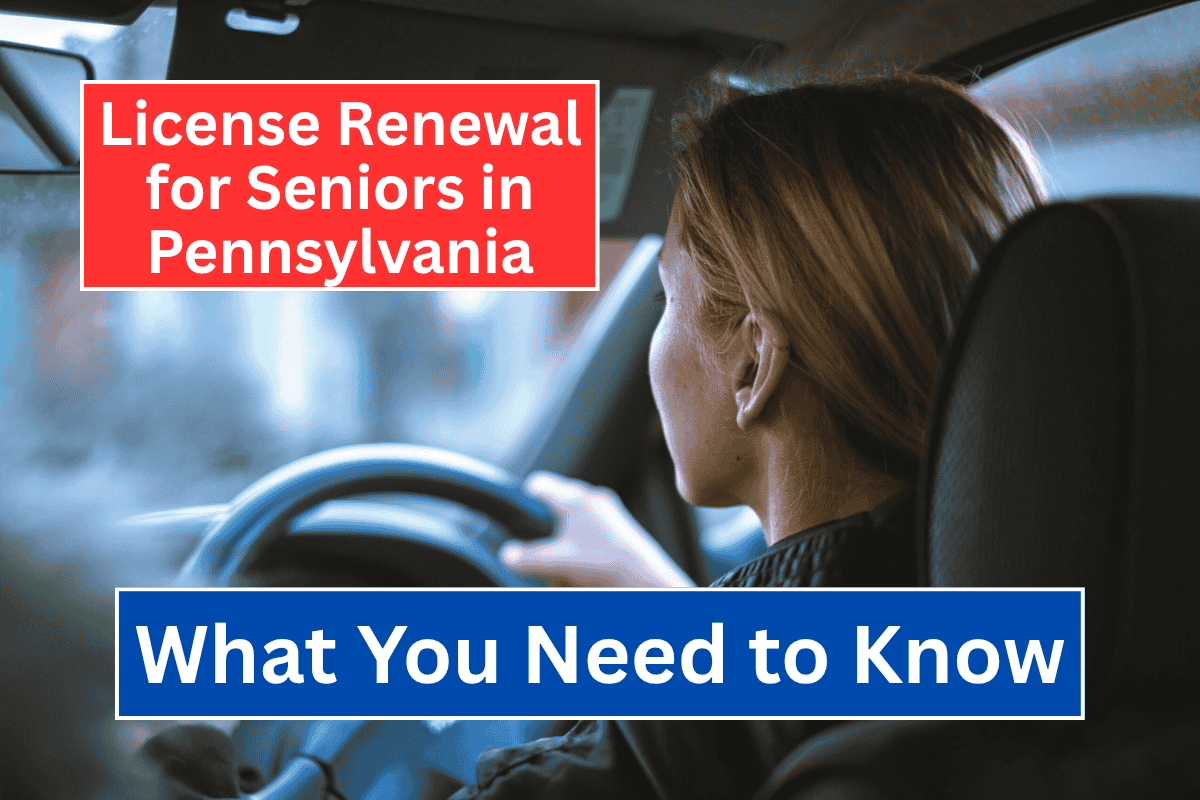Cars have become an integral part of daily life in the United States, offering essential mobility and freedom, especially for seniors.
As people age, their ability to drive safely can change, which has led many states to implement special regulations for older drivers when it comes to license renewals and road safety.
If you are a senior in Pennsylvania or know someone who is, understanding the rules surrounding license renewal is crucial to ensure continued driving safety and compliance with the law.
Driving Trends Among Seniors
Seniors aged 70 and older typically drive fewer miles than younger drivers. According to the Insurance Institute for Highway Safety (IIHS), older drivers are generally safer on the road. A report from AAA highlights that, despite driving fewer miles, seniors tend to have a lower crash rate.
However, as they age, physical and cognitive changes can affect their driving skills, prompting the need for specific rules and regulations regarding license renewals and age-based restrictions.
Driver’s License Renewals and Age Restrictions
Although no state automatically revokes a driver’s license purely due to age, many states impose additional requirements for older drivers when it comes to renewing their licenses.
These rules vary significantly by state and may include shorter renewal periods or additional tests to ensure that seniors are still fit to drive.
Shortened Renewal Periods for Seniors
In some states, seniors are required to renew their driver’s licenses more frequently as they age. For example:
In Arizona, drivers aged 65 and older must renew their licenses every five years, compared to the standard 12-year renewal period for younger drivers.
In Pennsylvania, seniors aged 65 and older have the option to renew their licenses every two years instead of the usual four-year period.
In Illinois, the renewal period for drivers aged 81-86 is reduced to two years, and drivers aged 87 and older must renew their licenses every year.
These shortened renewal periods are designed to help ensure that older drivers maintain their ability to drive safely and in accordance with the law.
Vision Tests and In-Person Renewals
In addition to shortened renewal periods, many states require seniors to undergo stricter testing to ensure they are still capable of driving safely.
Some states require vision tests as part of the license renewal process for senior drivers. For instance, Colorado and Washington state mandate that seniors take a vision test when renewing their driver’s license.
In Illinois, senior drivers aged 75 and older are required to take a road test in addition to the vision test. This helps ensure that they are still capable of safely operating a vehicle.
State Referrals for Unsafe Drivers
While some states have specific age-based restrictions, all states allow individuals such as family members or health care professionals to report drivers they believe may no longer be safe behind the wheel.
These referrals can trigger an investigation by the Department of Motor Vehicles or equivalent state agency. If necessary, the senior driver may be required to take a road test to evaluate their ability to drive.
Medical Reporting Laws
Although most states do not require doctors to report unsafe drivers, a few have exceptions. In California, for example, doctors are legally required to report patients diagnosed with dementia, while other states, including California, mandate the reporting of patients with conditions like epilepsy.
These laws are designed to ensure that individuals with certain medical conditions are not driving if their condition impairs their ability to safely operate a vehicle.
Navigating State-Specific Laws
Each state, including Pennsylvania, has its own specific guidelines regarding license renewals for seniors. The IIHS provides a comprehensive state-by-state guide, which can be a helpful resource for seniors to navigate their state’s rules and regulations regarding driver’s license renewal.
For the most accurate and up-to-date information on driving regulations for seniors in Pennsylvania, it’s always a good idea to check with your local motor vehicle services agency.
Alternative Transportation for Aging Drivers
For seniors who may no longer feel comfortable driving or whose health may prevent them from doing so safely, several alternative transportation options are available. These options ensure that seniors can continue to get around without compromising their safety or independence.
Public transportation: Many areas offer senior-friendly public transit options, making it easier for seniors to travel.
Call-and-Ride programs: These services are designed to provide seniors with scheduled rides to key destinations such as medical appointments and shopping trips.
Uber Caregivers: This service is tailored to help seniors get to medical appointments or other essential services safely and with support.
While driving may remain an important part of independence for many seniors, these transportation options offer reliable alternatives that can ensure safety on the road.
Ensuring Safety and Independence
Driving can be a vital part of maintaining independence for many seniors, but it’s essential to understand and comply with state-specific driving regulations. In Pennsylvania, seniors have the option of renewing their licenses every two years, but this comes with the responsibility of ensuring they are still fit to drive.
By staying informed about the rules, taking necessary vision tests, and seeking alternative transportation when needed, seniors can continue to enjoy mobility while prioritizing safety.
The Elder Law attorneys at Mandelbaum Barrett PC are here to assist if you have any questions about senior driving regulations, medical reporting laws, or alternative transportation options. If you or a loved one needs guidance or legal support, our team is ready to help.












